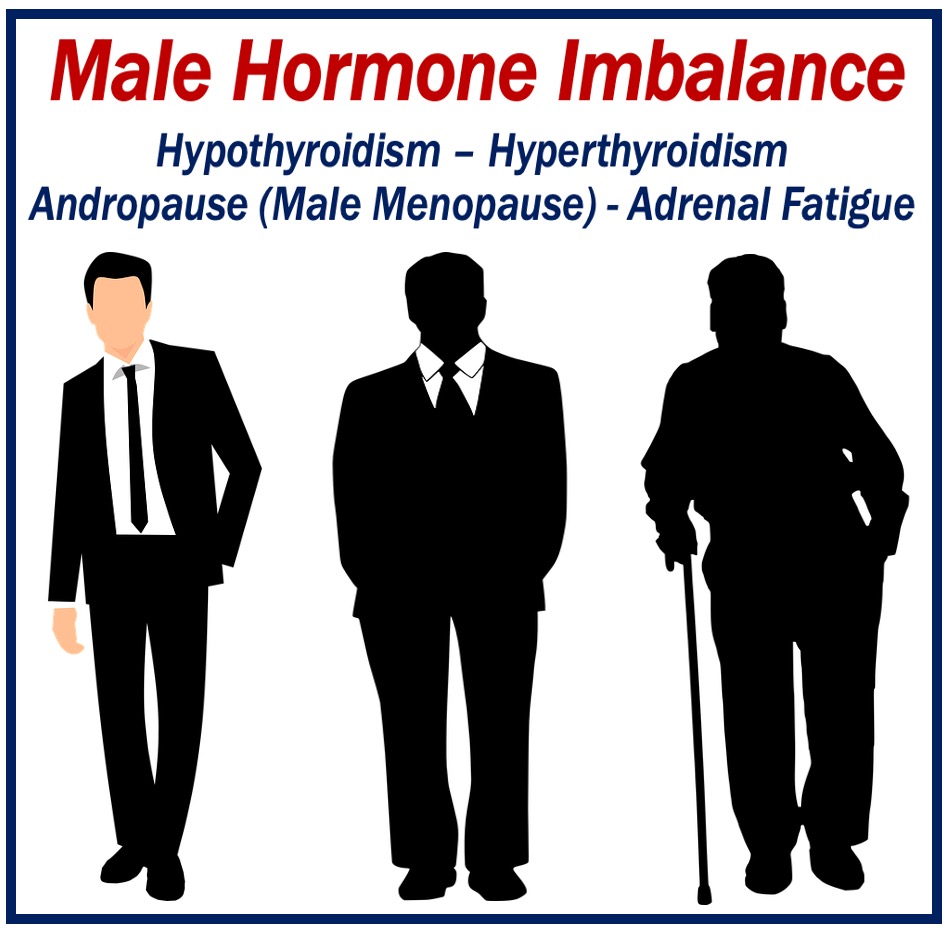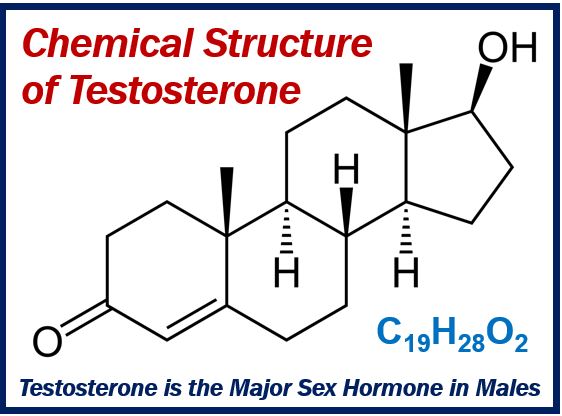Men usually put their body changes down to the ageing process. But these ‘ageing’ symptoms are caused by hormone imbalances, affecting the testosterone, and thyroid and cortisol levels. Unfortunately, hormonal imbalances are a common issue among men, affecting the quality of their lives.

While it is true that men are more prone to experience hormone imbalance as they age, there are also other contributing factors. Here is all you need to know about this condition.
What are hormonal imbalances?
Hormonal imbalances happen when too little or too much hormone is produced in your body. While an occasional irregularity doesn’t have significant consequences, a major imbalance can affect your health considerably. Glands produce hormones – chemicals that play an essential role in your body, regulating various systems, such as digestion, movement, tissue function, reproduction, mood, metabolism, etc.
When hormones are not balanced, it affects your overall health and bodily functions, such as reproductive cycles, heart rate, mood and sleep cycles.
While there may be fluctuations in hormone levels over time, hormonal imbalances can also happen because of poor nutrition, injury, a lack of physical activity and stress. Imbalances in growth hormones are common for both women and men.
However, men are more prone to experience a drop in testosterone, also known as men’s menopause or hypogonadism. Low testosterone leads to decreased energy, stamina, strength, and sexual function. Research has shown that low testosterone may increase the risks of metabolic syndrome, coronary artery disease and type 2 diabetes.
Types of male hormone imbalances
Testosterone is the primary male hormone, along with insulin, cortisol and thyroid hormones. If any of these hormones are unbalanced, they result in the following conditions:
- Hypothyroidism. An underactive thyroid gland decreases thyroid hormone production, thus leading to this condition.
- Hyperthyroidism. Unlike hypothyroidism, this condition occurs when the thyroid gland is overactive and produces too many thyroid hormones.
- Andropause or male menopause. Low testosterone levels lead to this condition.
- Adrenal fatigue. This occurs due to prolonged stress, as your adrenal glands lower cortisol production, which is your body’s primary stress response.
Factors that lead to male hormone imbalances
While it’s normal to experience hormone imbalances over time, they can also result from a malfunctioning of the endocrine glands. The endocrine system produces, stores, and releases hormones into the body’s bloodstream.
Common causes of hormone imbalance include:
- Poor nutrition or diet;
- Type 1 or type 2 diabetes;
- Severe injury;
- Prolonged exposure to stress;
- Being overweight or anorexic;
- Pancreatitis;
- Certain types of cancer;
- Allergic reactions;
- Steroid medications;
- Hypoglycaemia;
- Hyperglycaemia;
- Iodine deficiency;
- Hypothyroidism;
- Addison’s disease.
Symptoms of male hormone imbalances
Hormonal imbalances can occur to men of any group, but they are most common among individuals who are 30 or older. In the beginning, you can easily think overwork or tiredness causes the symptoms of hormone imbalances. But over time, they worsen, significantly disrupting men’s quality of life.
The symptoms vary depending on the glands or hormones that are affected and can include:
Loss of muscle
Lifestyle changes can account for gaining weight and losing muscle. However, hormonal imbalances can also result in changes in body composition. Testosterone’s function is to build and maintain muscle mass. You’ll know there’s a testosterone level drop when you notice weight gain or muscle atrophy.
There are other hormones linked to weight changes as well. For instance, increased levels of cortisol – the fight or flight hormone – interfere with your metabolism, suppressing testosterone production, which in turn leads to muscle loss.
Erectile dysfunction
Hormonal imbalances can affect your sexual life, causing erectile dysfunction. Several factors influence erectile dysfunction, such as age, depression, stress, chronic illness, heart disease and insomnia.
Some medications, such as opiates and those used for hypertension treatment, can also cause erectile dysfunction.
Mood changes
Besides physical symptoms, mood changes may also point to hormonal imbalances. Low testosterone levels may cause irritability, depression, mood swings, loss of motivation and anxiety. Thyroid disorders can also cause mood changes.
Other symptoms of hormone imbalances are:
- Fatigue;
- Cognitive decline;
- Memory loss;
- Changes in blood pressure and heart rate;
- Frequent urination;
- Sleep problems.
How can you treat hormonal imbalances?
Dealing with hormonal imbalance symptoms can be overwhelming. Luckily, they can be efficiently treated. If you think you may be experiencing hormonal imbalance symptoms, the most important thing you should do is visit a medical expert. They can perform tests to check your hormone levels and then provide a treatment option that fits your lifestyle and needs.
Treatments will vary depending on the type of imbalance that is causing your symptoms, and they can include:
Testosterone therapy

This type of therapy involves taking supplements that can decrease low testosterone symptoms. The treatment has several forms, including gel, injections, and a patch.
Testosterone replacement therapy is beneficial for older men, boosting libido and muscle strength, increasing sexual function and boosting density and bone strength. However, testosterone therapy is not recommended for individuals with prostate cancer
Thyroid hormone therapy
Supposing you have hypothyroidism, your doctor may recommend thyroid hormone therapy. This treatment can help balance your hormone levels and regulate the thyroid gland by taking levothyroxine – a synthetic thyroid hormone – either orally or through injections.
Besides medical treatment, lifestyle changes can also help you balance your hormones. Here’s what you can do:
- Manage stress. Stress affects two major hormones – adrenaline and cortisol. Managing stress is vital to preventing hormone imbalances, so try to include activities in your routine that can lower your stress levels.
- Include proteins in your diet. Proteins provide vital amino acids that your body needs to maintain skin, muscle and bone health. Additionally, proteins also influence the release of leptin and ghrelin, hormones that control your appetite.
- Exercise regularly. You should make physical activity part of your daily routine, as it can help lower insulin levels and regulate your hormones.
- Avoid carbs and refined sugar. Keeping your carb and sugar levels in check can help you avoid developing diseases such as obesity or diabetes.
Final thoughts
Hormonal imbalances can occur for various reasons and the symptoms can significantly affect the quality of your life. However, there are available treatment options that can help reduce your symptoms.
Interesting related article:

